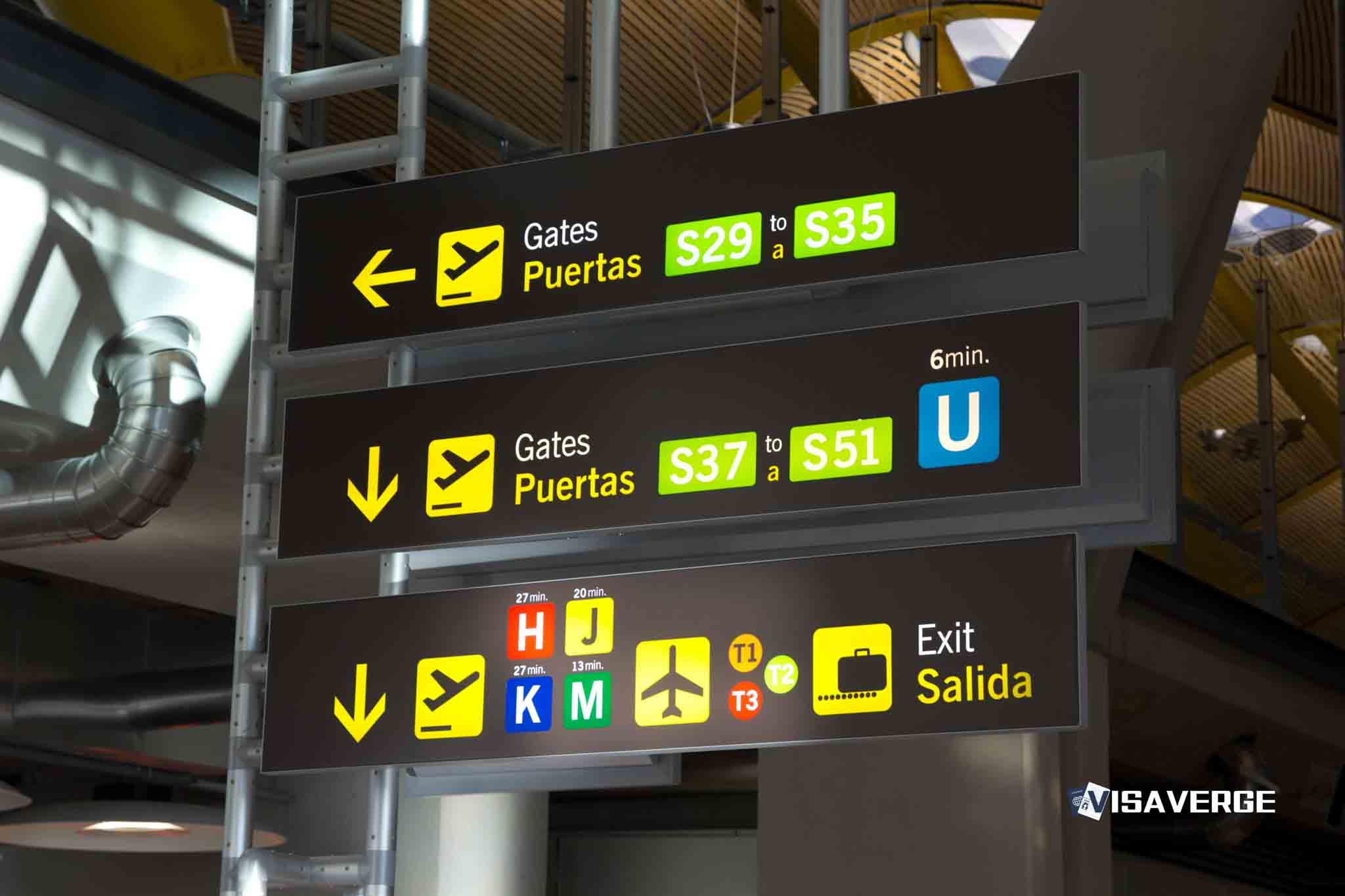Key Takeaways
• Alma Bowman detained by ICE on March 26, 2025, despite claiming US citizenship through Navy veteran father.
• She faces deportation to the Philippines after nearly 50 years living in Macon, Georgia.
• Her case highlights complex legal issues and calls for immigration system reform.
Alma Bowman’s Detention by ICE: A Deep Dive into a Citizenship Dispute and Its Impact
A Macon Woman’s Life Upended by ICE Detention

On March 26, 2025, Alma Bowman, a 58-year-old resident of Macon, Georgia, arrived at her routine check-in with U.S. Immigration and Customs Enforcement (ICE). She was in a wheelchair, accompanied by her two adult children and her legal team. Instead of the usual fingerprinting, Alma was separated from her family and detained on the spot. She was transferred to Stewart Detention Center in Lumpkin, Georgia, where she remains as of June 2025. Despite living in the United States 🇺🇸 for nearly 50 years and believing she was a citizen, Alma now faces deportation to the Philippines—a country she left as a child.
This case has sparked public outcry, legal battles, and renewed debate about how the United States 🇺🇸 handles citizenship claims, especially for people who have lived most of their lives in the country. Alma’s story is not just about one woman’s struggle; it highlights larger problems in the immigration system that affect families, communities, and the nation’s sense of fairness.
Who Is Alma Bowman?
- Name: Alma Bowman
- Age: 58
- Birthplace: Philippines
- Family: Two adult children (both U.S. citizens), married twice to U.S. citizens
- Immigration History: Moved to the United States 🇺🇸 at age 10, has lived in Macon, Georgia, for almost five decades
Alma’s father was a U.S. Navy veteran and a U.S. citizen at the time of her birth. Her legal team argues that this should have made Alma a U.S. citizen from birth. However, ICE has questioned her status, citing what they say are gaps or problems in her documentation.
Why Was Alma Detained?
Alma’s detention is the result of a long and complicated legal process. She had previously been detained by ICE for nearly three years between 2017 and 2020, held in three different facilities. After her release, she continued to check in with ICE as required. But at her March 2025 check-in, ICE decided to detain her again, saying her citizenship claim was still unresolved.
ICE’s official position is that they must enforce immigration laws and remove people who do not have legal status. In cases where someone’s citizenship is in question, ICE may detain the person until the matter is settled. Alma’s legal team and supporters argue that she has provided enough proof of her citizenship and that her detention is both unnecessary and harmful.
What Does the Law Say About Citizenship for Children Born Abroad?
Under U.S. law, children born outside the United States 🇺🇸 to a U.S. citizen parent may acquire citizenship at birth. However, this process is not automatic. The parent must meet certain requirements, such as having lived in the United States 🇺🇸 for a specific period before the child’s birth. The child or their family must also provide documents showing the parent’s citizenship and physical presence in the country.
In Alma’s case, her legal team says her father was a U.S. citizen serving in the Navy when she was born, which should qualify her for citizenship. But ICE says there are problems with her paperwork, and until those are resolved, they are treating her as someone who can be deported.
Step-by-Step: What Happens During an ICE Check-In and Detention?
- Scheduled Check-In: People with pending immigration cases must report to ICE at set times.
- Document Review: ICE checks documents related to the person’s status, citizenship, or any removal orders.
3. Decision to Detain: If ICE believes there is a reason—such as an unresolved status or a removal order—they may detain the person immediately. - Transfer to Detention Center: The person is taken to a facility like Stewart Detention Center.
- Legal Proceedings: The detainee can try to fight their detention, ask for bond, or present their citizenship claim in court.
For Alma, this process has been especially hard. On March 26, 2025, she arrived at her check-in in a wheelchair, expecting a routine visit. Only one of her lawyers was allowed to go with her, and she was separated from her family. Instead of being fingerprinted, she was detained and taken to Stewart Detention Center.
The Human Cost: How Detention Affects Families and Communities
Alma’s detention has deeply affected her family. Her two adult children, both U.S. citizens, have spoken out about the emotional and financial strain. They worry about their mother’s health and safety, especially since she uses a wheelchair and has lived in the United States 🇺🇸 for almost her entire life.
Her case has also brought together advocacy groups, such as Asian Americans Advancing Justice – Atlanta. On April 2, 2025, the group released a statement condemning Alma’s detention and calling for her immediate release and reunification with her family. Public demonstrations and media coverage have followed, shining a light on the broader issues at play.
Systemic Issues: What Alma’s Case Reveals About U.S. Immigration
Alma Bowman’s story is not unique. According to analysis from VisaVerge.com, cases like hers show that the U.S. immigration system often struggles to handle complex citizenship claims, especially for people born abroad to U.S. citizen parents. The process for proving citizenship can be confusing and slow, and even people with strong claims can end up in detention for years.
Some of the main problems highlighted by Alma’s case include:
- Difficulty Proving Citizenship: People must provide old documents, sometimes from other countries, to prove their parent’s citizenship and physical presence in the United States 🇺🇸. This can be very hard, especially if records are missing or incomplete.
- Long Detention Periods: Even when someone has a good claim to citizenship, they can be held in detention for months or years while their case is reviewed.
- Emotional and Financial Strain: Families are separated, and the cost of legal help can be very high.
- Public Trust Issues: Cases like Alma’s can make people lose trust in the fairness of the immigration system.
Multiple Perspectives: ICE, Legal Experts, and Advocates
- ICE’s View: ICE says it must enforce the law and cannot let people stay in the country if their status is not clear. In cases where citizenship is disputed, ICE may detain the person until the courts decide.
- Legal Experts: Lawyers point out that U.S. law does allow children born abroad to get citizenship through a U.S. citizen parent, but the rules are complicated. Even with good evidence, people can face long legal battles.
- Advocacy Groups: Groups like Advancing Justice-Atlanta say the system is too harsh and slow, especially for people who have lived in the United States 🇺🇸 for most of their lives. They call for more humane and efficient ways to handle these cases.
What Are the Policy Implications?
Alma’s case has led to calls for changes in how the United States 🇺🇸 handles citizenship claims:
- Better Verification: There is a need for clearer and faster ways to check citizenship claims, especially for people with U.S. citizen parents.
- Detention Reform: Many are asking for limits on how long people can be held in detention, especially when they have strong ties to the country.
- Restoring Trust: The government must work to rebuild trust by making the process fairer and more transparent.
What Can People in Similar Situations Do?
If you or someone you know is facing a similar situation, here are some steps you can take:
- Gather Documentation: Collect as much proof as possible of your parent’s citizenship and their time spent in the United States 🇺🇸 before your birth.
- Seek Legal Help: Contact an immigration lawyer who has experience with citizenship claims. You can also reach out to advocacy groups for support.
- Know Your Rights: Detainees have the right to a hearing and can ask for bond or file appeals. For more information on your rights and the process, visit the official ICE website.
Resources and Contacts
- Asian Americans Advancing Justice – Atlanta
- Contact: James Woo, Director of Communications
- Email: [email protected]
- Website: advancingjustice-atlanta.org
- ICE Atlanta Field Office
- Phone: (404) 893-1210
- Website: ice.gov (search for Atlanta Field Office)
- Stewart Detention Center
- Address: 146 CCA Road, Lumpkin, GA 31815
- Phone: (229) 838-5000
Legal Remedies for Detainees
People in detention can try several legal options:
- Habeas Corpus Petition: This is a legal request to challenge the lawfulness of detention.
- Bond Hearing: Detainees can ask for release on bond while their case is pending.
- Appeals: If denied, people can appeal to higher courts or immigration judges.
Documentation Needed for Citizenship Claims
To prove citizenship through a U.S. citizen parent, you usually need:
- Proof of the parent’s U.S. citizenship (such as a birth certificate or passport)
- Evidence that the parent lived in the United States 🇺🇸 for the required time before your birth
- Your own birth certificate, showing the parent’s name
If you need to apply for a Certificate of Citizenship, you can use Form N-600 from the U.S. Citizenship and Immigration Services (USCIS). This form helps people born outside the United States 🇺🇸 to claim citizenship through their parents.
Looking Ahead: What’s Next for Alma Bowman and Others Like Her?
Alma’s legal team is working hard to prove her citizenship and get her released from detention. Advocacy groups are pushing for policy changes to prevent similar cases in the future. The case has drawn national attention, and many are watching to see what will happen next.
No new laws or policies have been announced in the past week, but the pressure for reform is growing. Alma’s case is a powerful reminder of the real-life impact of immigration laws and the need for a system that treats people fairly.
Key Takeaways
- Alma Bowman, 58, has lived in the United States 🇺🇸 for nearly 50 years and claims citizenship through her Navy veteran father.
- She was detained by ICE on March 26, 2025, during a routine check-in, and now faces deportation to the Philippines.
- Her case highlights problems in the immigration system, especially for people with complex citizenship claims.
- Advocacy groups and her legal team are calling for her release and for changes to the system.
- People in similar situations should gather documents, seek legal help, and know their rights.
Final Thoughts
Alma Bowman’s story is about more than just one person. It shows how complicated and sometimes unfair the immigration system can be, especially for people who have lived in the United States 🇺🇸 for most of their lives. As reported by VisaVerge.com, her case is a wake-up call for lawmakers, officials, and communities to work together for a more just and humane system.
For those facing similar challenges, remember that support is available—from legal experts, advocacy groups, and your community. Stay informed, gather your documents, and don’t be afraid to ask for help. The fight for fair treatment and recognition is ongoing, and every voice counts.
Learn Today
ICE → U.S. Immigration and Customs Enforcement, agency enforcing immigration laws and detaining individuals.
Detention Center → Facility where immigration detainees are held during legal review or deportation proceedings.
Certificate of Citizenship → Official USCIS document proving a person’s citizenship through parents born abroad.
Habeas Corpus → Legal petition challenging unlawful detention of a person in custody.
Removal Order → Government directive ordering a non-citizen to leave the United States.
This Article in a Nutshell
Alma Bowman, detained despite nearly 50 years in the US and citizenship claims, faces deportation to the Philippines. Her case exposes flaws in immigration law and advocacy for fair treatment grows nationwide.
— By VisaVerge.com













